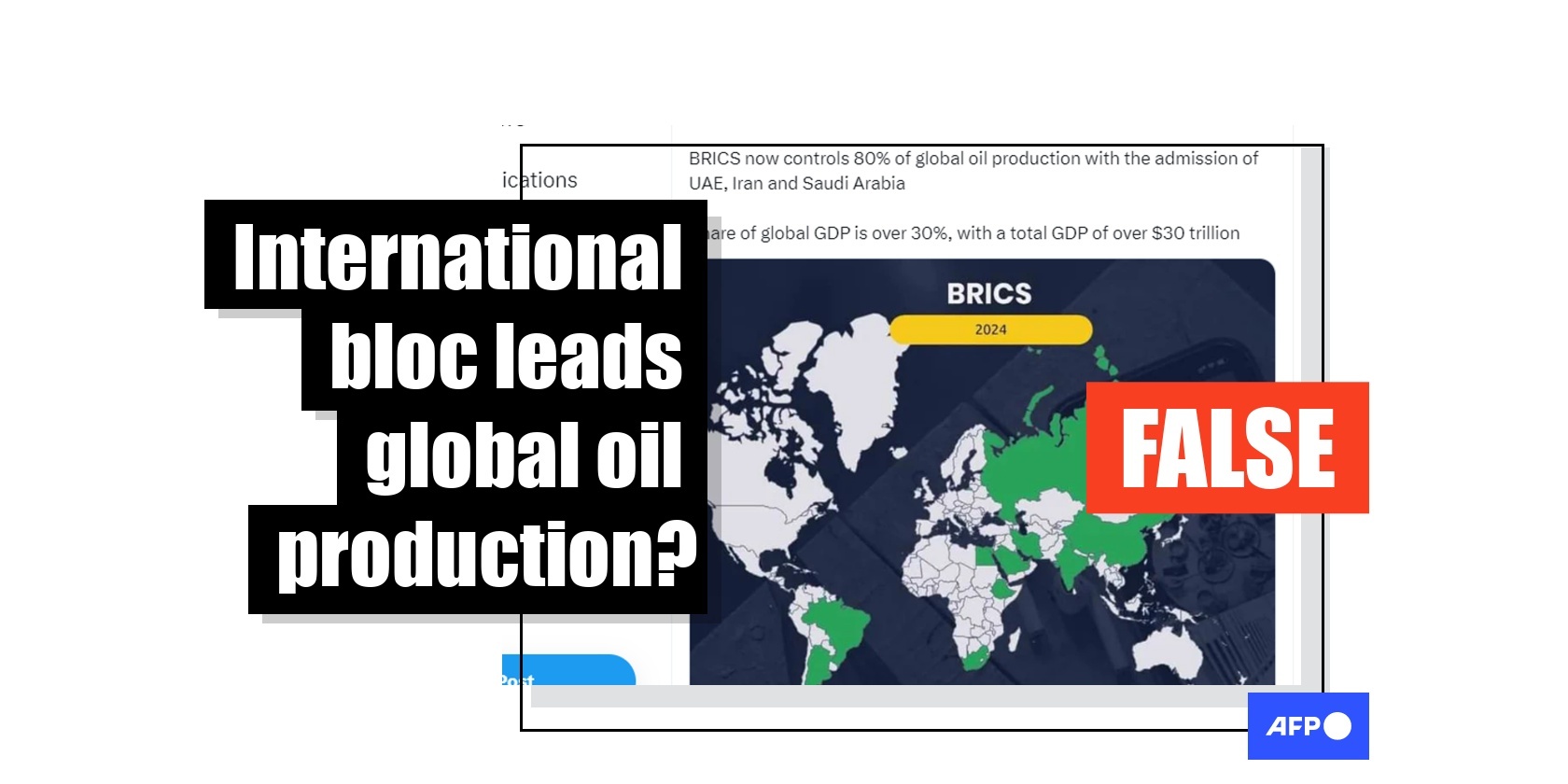
Posts falsely claim BRICS controls 80% of petroleum production
- This article is more than two years old.
- Published on September 8, 2023 at 23:24
- 3 min read
- By Maja CZARNECKA, AFP Poland, AFP France, AFP Canada
- Translation and adaptation Gwen Roley
"BRICS now controls 80% of global oil trade. The oil trade will not be in US dollars," says an August 24 post on X, formerly known as Twitter. "Putin's dedollarization project is shaping up beautifully."
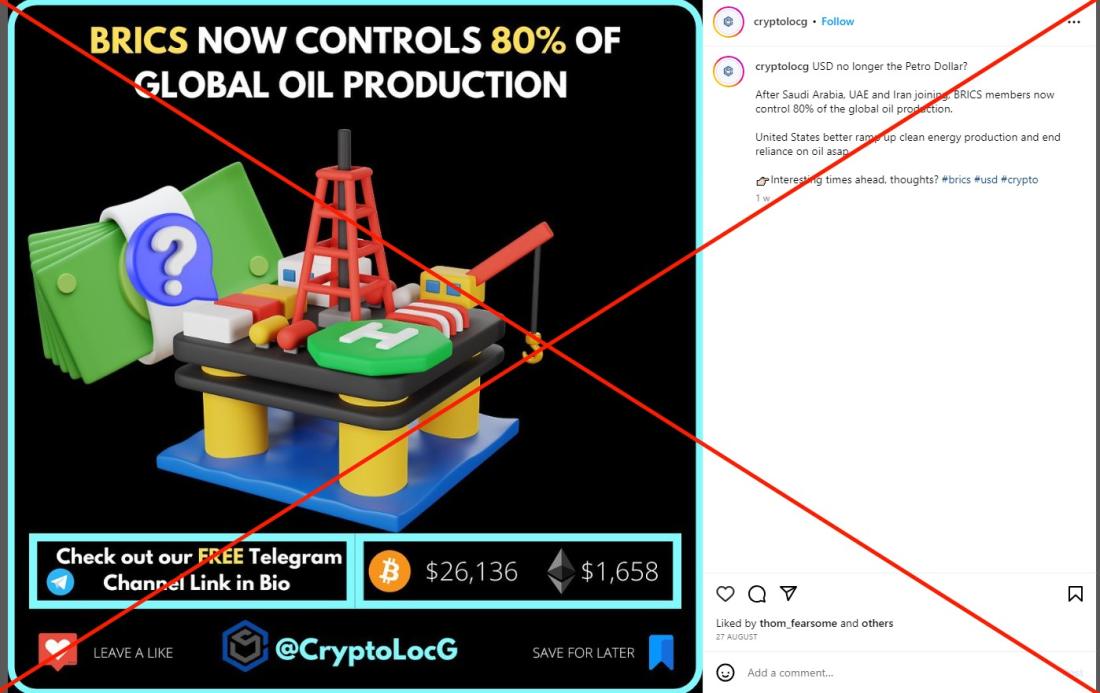
Similar claims spread elsewhere on X, TikTok, Facebook, Instagram and other platforms -- including in French, German and Polish.
The BRICS coalition -- founded by Brazil, Russia, India, China and South Africa -- announced August 24 that it would admit six new countries in 2024: Iran, Argentina, Egypt, Ethiopia, Saudi Arabia and the United Arab Emirates (UAE).
Saudi Arabia, the UAE and Iran are large oil producers and members of the Organization of Petroleum Exporting Countries (OPEC). Many of the posts concluded the new coalition would destabilize the United States' position in the petroleum industry.
"With the addition of Saudi Arabia, the United Arab Emirates and Iran to the BRICS, the Union will be able to control the lion's share of the world's oil production," says an August 24 X post with more than 25,000 likes.
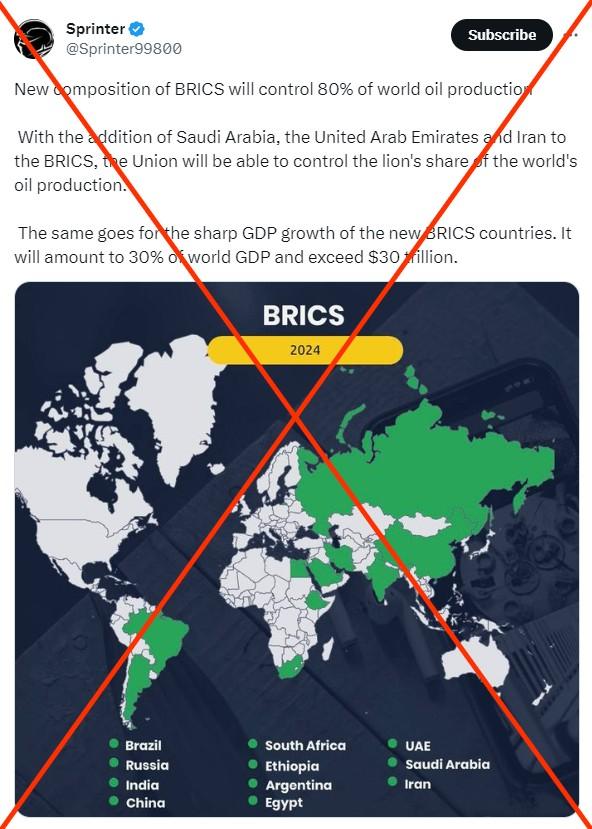
However, experts say the actual number is about half of what the posts claim.
Andrzej Szczesniak, an oil industry analyst from Poland, said in an August 25 X post that the new BRICS coalition would control 43 percent of oil production and 41 percent of oil deposits (archived here).
Other data back that up.
The BRICS coalition controls 21 percent of the world's oil production, according to the International Energy Agency (archived here). Meanwhile, the three OPEC members added to the group will bring another 20 percent of the petroleum industry into the fold.
Several media organizations, including the American magazine Forbes (archived here) and the data journalism site Visual Capitalist (archived here), have published similar figures.
"The addition of Saudi Arabia, Iran and the UAE will more than double BRICS' share of global oil production," says text over a Visual Capitalist graphic published August 24.
The data, taken from the United Kingdom-based Energy Institute, indicate the new coalition will comprise 43.1 percent of global output.
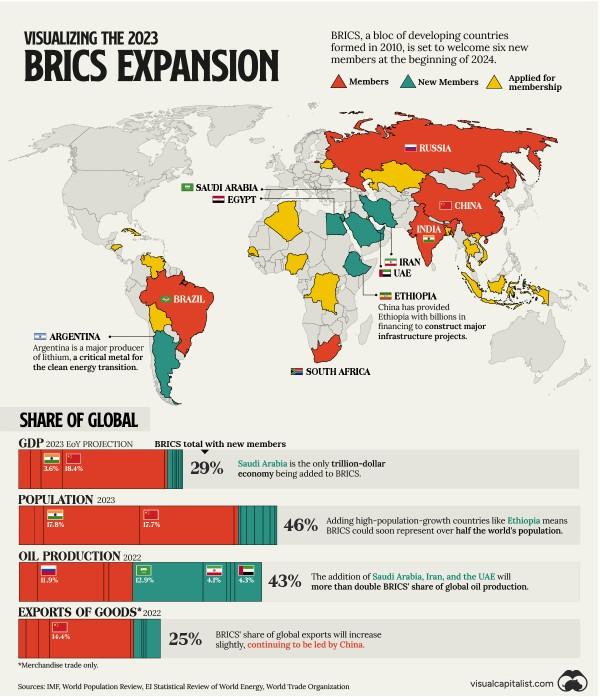
The Center for Strategic and International Studies (CSIS), an American think tank, reached similar conclusions (archived here).
"Oil market management will remain the purview of the Organization of the Petroleum Exporting Countries and allied producers (OPEC+)," the organization said in its August 25 analysis. "But over the long term, an expanded BRICS grouping could be significant for energy markets."
CSIS separately noted more than 40 other countries have expressed interest in joining BRICS (archived here).
The United States remains at the top of the oil market, according to the Energy Information Administration (EIA). The country produces 20.2 million barrels per day, comprising 20 percent of global output (archived here).
Six of the other top 10 oil producers on the EIA's list are current or soon-to-be BRICS members.
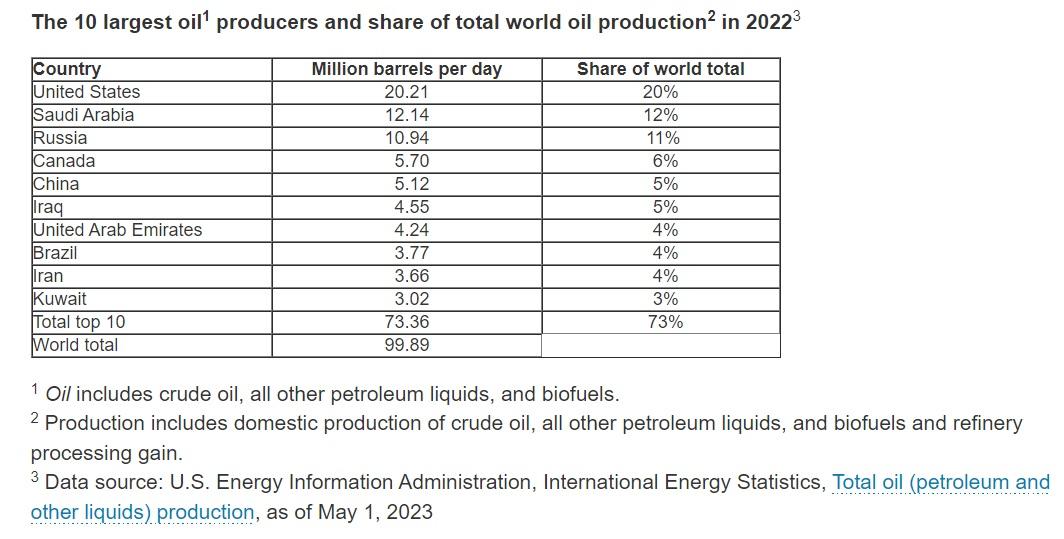
BRICS on the global stage
Created in 2009, the BRICS coalition has met once a year to affirm its members' place in the global economy -- often in contrast with the dominance of the United States and the European Union.
The most recent BRICS convention in Johannesburg highlighted divisions with the West over the war in Ukraine, with Vladimir Putin absent due to his international arrest warrant. South Africa, China and India have yet to condemn Russia's invasion.
While claims of oil production dominance are false, a number of social media posts also say the new BRICS coalition's combined gross domestic product (GDP) "will amount to 30 percent of world GDP and exceed 30 trillion dollars."
The best available data support that claim.
As of April 2023, the combined GDP of the 11 current and soon-to-be members of BRICS was $30.8 trillion USD out of a global $105.6 trillion, according to the International Monetary Fund's World Economic Outlook (archived here).
AFP has fact-checked other false and misleading claims about oil here.
Copyright © AFP 2017-2026. Any commercial use of this content requires a subscription. Click here to find out more.
Is there content that you would like AFP to fact-check? Get in touch.
Contact us




